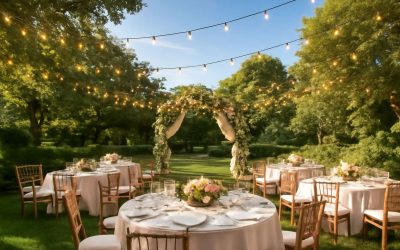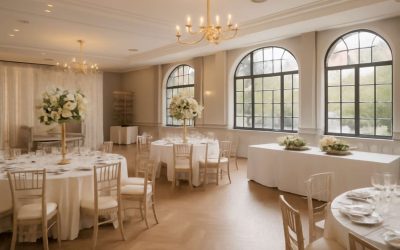
Venue rental costs are an integral component of most events that take place at physical venues. They may be an individual expense or part of a package deal, and it is essential that these costs be considered carefully before selecting your venue for hosting your event.
Price will depend on several factors related to type and location. A more expensive historic venue may cost more to rent than its modern equivalent; furthermore, attendance can impact costs as well.
Some venues charge just for renting the space (hire fee), while others may add catering and technical equipment rental costs into the mix. You must decide how much of an expense your event requires before choosing your venue and services accordingly.
Venues usually provide booking forms that outline your event start and end times, how many attendees will attend, what facilities they will have access to and more. As these documents can often include small print hidden behind layers of text, it’s essential that you read these carefully prior to signing them.
When selecting a venue, certain key considerations should be kept in mind: Does the space provide tables, chairs and linens; will a setup/clean-up crew be provided; does it offer audio-visual capabilities and provide sound systems?
If the venue offers these amenities, renting them rather than buying can save a considerable amount of money. Be sure to ask about any special fees that they might impose for these items before renting.
As part of your venue selection process, it is also important to verify whether they will provide refreshments for your team. If they will be meeting for an extended period, refreshments such as coffee, tea, water and biscuits will likely be necessary; if this cannot be provided at the location in which your meeting takes place then these must be brought from home or brought from outside sources.
Restaurants make excellent locations for any special event because of the diverse menu offerings they can provide to satisfy all kinds of tastes and dietary restrictions. Furthermore, they may provide amenities such as private dining rooms and outdoor spaces.
Restaurants provide an ideal setting for event planning as they typically operate 24/7 and will have staff ready to answer any of your queries about how best to plan and host their event. This makes event management much simpler, ensuring everything necessary for a successful experience is present for a smooth event experience.
For instance, if you’re hosting a dinner party and looking to offer something memorable and unique for your guests, an experience at a restaurant can provide just the perfect touch.
Some restaurants will even share in the revenue from their venues if you use it for alternative uses (e.g. office or party). This would create an ideal situation for all involved.
Food costs in restaurants tend to be higher than at dry hire venues; however, they typically offer more flexible scheduling, making it possible to bring in outside caterers and vendors which helps bring down overall venue hire costs.



0 Comments